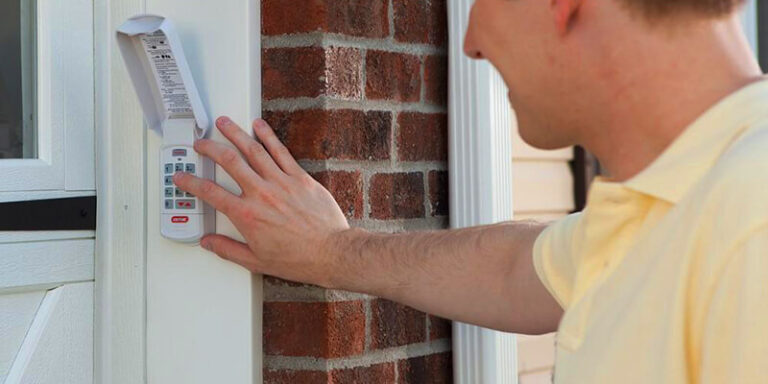Can Exercise Help Sleep Apnea?
Obstructive sleep apnea (OSA) is a sleep disorder affecting 15-30% of men and 10-15% of women. It causes breathing lapses during sleep, often leading to snoring and daytime sleepiness.
OSA is linked to obesity, raising questions about whether exercise or weight loss can help.
In this article, we discuss their impact, types of exercises studied, and when to consult a doctor.
Can Exercise Help Sleep Apnea?

Yes, exercise can lessen the severity of obstructive sleep apnea, even without significant weight loss. It offers several benefits for OSA sufferers, including:
- Fewer breathing lapses during sleep
- More restful sleep
- Decreased daytime sleepiness
- Enhanced quality of life
- Improved cardiovascular fitness and muscle strength
- Better attention and cognitive function
Experts recommend exercising regularly for those with sleep apnea. Exercise can alleviate symptoms by reducing fluid shifts in the body during sleep, easing pressure on the upper airway.
For more guidance, you might want to have a video consultation with a sleep specialist.
How Exercise Helps Treat Sleep Apnea
Obstructive sleep apnea (OSA) is more common in overweight or obese individuals. Extra weight in the neck can block the airway, leading to snoring and breathing issues during sleep. Losing weight can reduce this pressure and alleviate symptoms. Even a modest weight loss of 10-15% can cut OSA severity by half.
Exercise plays a crucial role in weight loss and OSA treatment. It doesn’t have to be intense; simple activities like walking or standing more can help. Research shows that sedentary behavior, like spending long hours watching TV, increases OSA risk.
Conversely, being more active significantly lowers the risk. Meeting the WHO’s physical activity guidelines and reducing sedentary time can substantially decrease OSA risk.
For mild cases of sleep apnea, you may consider using some anti-snoring devices or anti-snoring mouthpieces.
Exercises for Better Sleep with Sleep Apnea
Studies have shown that various exercises can help alleviate symptoms of obstructive sleep apnea (OSA). These exercises include:
- Walking or jogging
- Tai chi
- Bicycling
- Using an elliptical trainer
- Resistance training
- A combination of aerobic exercise and resistance training
Throat Exercises for Sleep Apnea
In addition to aerobic exercise for weight loss, specific nose, mouth, and throat exercises can reduce or eliminate snoring. These exercises strengthen airway muscles, reposition the tongue, and promote nose breathing during sleep.
Myofunctional therapy, or oropharyngeal exercise, targets facial, neck, and mouth muscles, improving tongue position and oral posture. Research shows it can reduce sleep apnea severity, with one study showing a drop in apnea severity from moderate to mild.
Practicing mouth and throat exercises during the day keeps muscles toned, reducing snoring and treating mild sleep apnea. Combining these exercises with a CPAP device and healthy habits can enhance effectiveness.
Breathing exercises also strengthen airway muscles, improve nasal breathing, and stabilize airways during sleep.
For mouth and throat exercise options, ExciteOSA is recommended. This device trains tongue and upper airway muscles to maintain the correct position during sleep, promoting better sleep and easier breathing.
When to See Your Doctor for Sleep Apnea
If you experience symptoms such as snoring, gasping, or pauses in breathing during sleep, excessive daytime sleepiness, headaches, or falling asleep easily during daily activities, consult your doctor.
Many individuals with sleep apnea are unaware of their symptoms, so if a bed partner or family member notices these signs, it’s crucial to seek medical attention.
Untreated sleep apnea can lead to various health risks, including anxiety, depression, work or school issues, accidents, high blood pressure, heart attack, stroke, and heart failure.
While exercise may help alleviate symptoms, it’s essential to undergo testing and treatment under medical supervision.
FAQs About Sleep Apnea Exercises
- What Are Some Easy Exercises for Obstructive Sleep Apnea?
Easy exercises for sleep apnea focus on tongue and throat muscles. Try activities like yawning, tongue stretches, and singing, which take less than a minute.
- How Can I Treat Sleep Apnea Without a Doctor?
While it’s crucial to consult a healthcare provider if you suspect sleep apnea, you can try Positional Therapy and Exercise Therapy on your own.
- Do Sleep Apnea Exercises Fix Snoring?
Snoring and sleep apnea often result from airway blockages. Mouth and throat exercises can help reduce snoring and improve obstructive sleep apnea symptoms.



